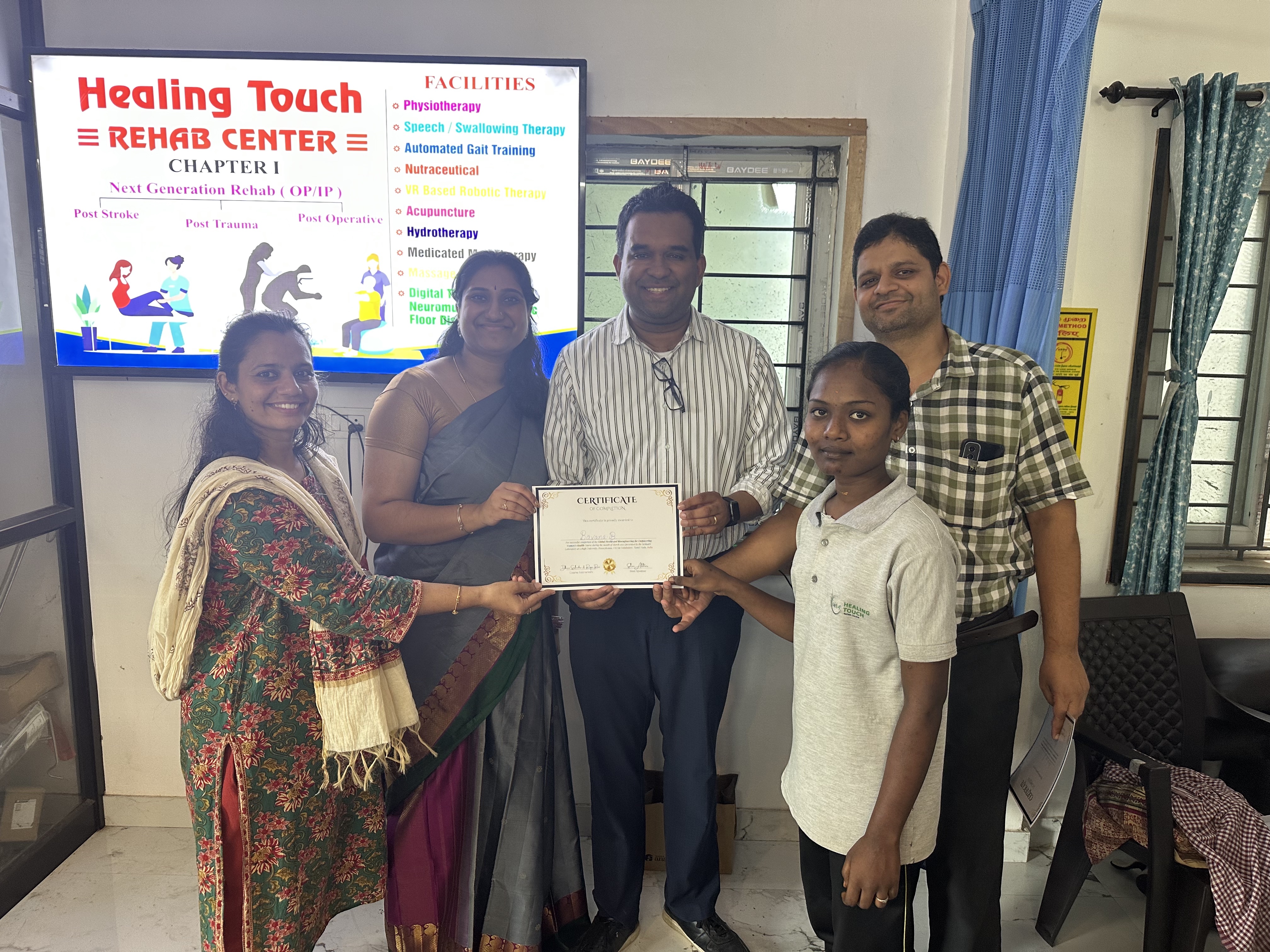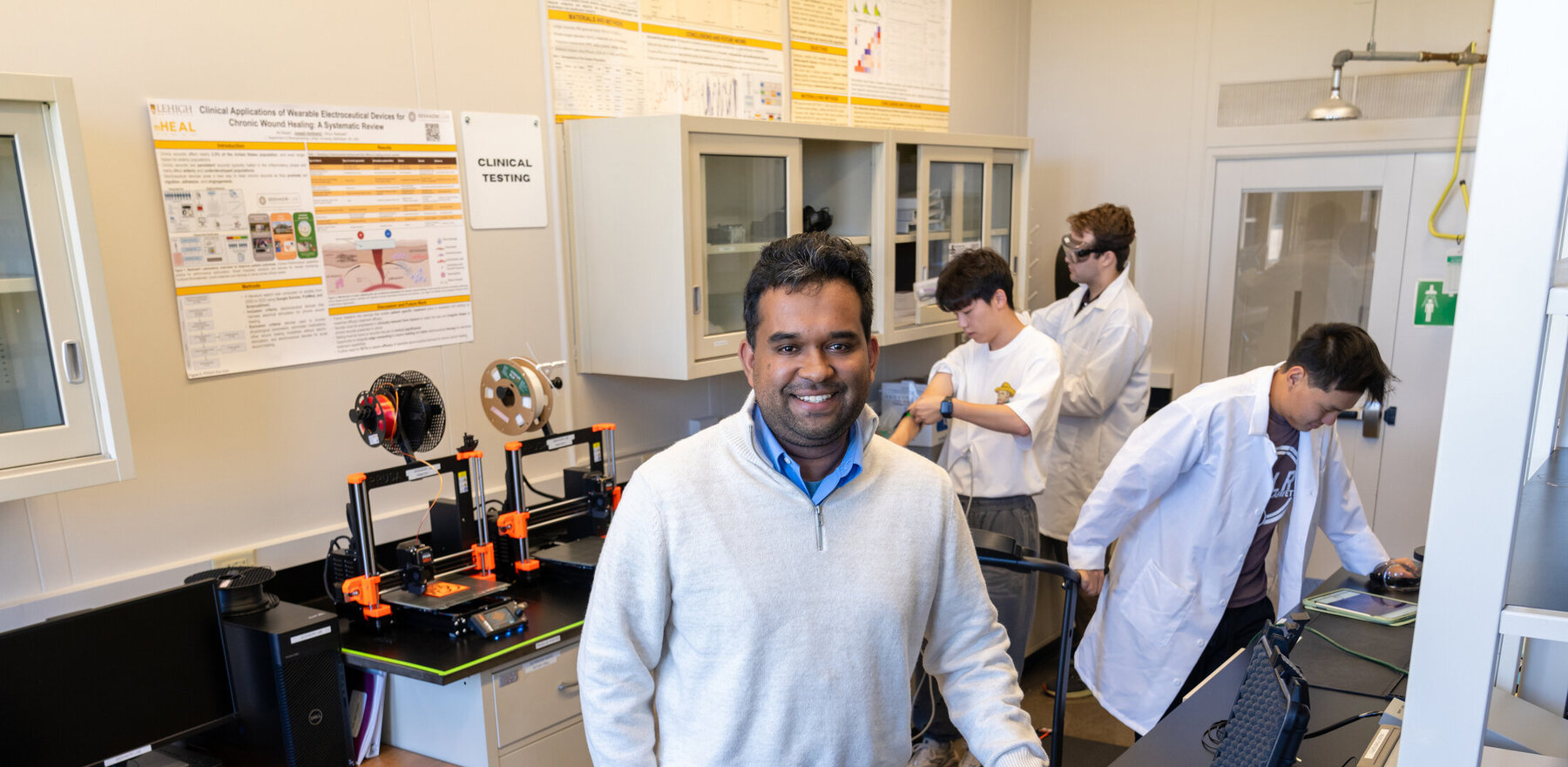Lehigh bioengineering professor Dhruv Seshadri is forging a transformative partnership with institutions in South India, creating new global learning and research opportunities for students on both sides of the world.
Dhruv Seshadri, an assistant professor of bioengineering at Lehigh University, is building a bridge between Lehigh and South India, which he hopes will create opportunities for students on both sides of the world.
 Through two Faculty Internationalization Grants from Lehigh’s Office of International Affairs (OIA), Seshadri has established partnerships with institutions in India, leading to a new spring course called “Equitable Innovation: Lehigh x India” and a formal memorandum of understanding (MOU) with KGISL Institute of Technology in Coimbatore, Tamil Nadu.
Through two Faculty Internationalization Grants from Lehigh’s Office of International Affairs (OIA), Seshadri has established partnerships with institutions in India, leading to a new spring course called “Equitable Innovation: Lehigh x India” and a formal memorandum of understanding (MOU) with KGISL Institute of Technology in Coimbatore, Tamil Nadu.
“What drives me is the opportunity to impact lives, not just in Lehigh Valley, but really from a global health standpoint,” Seshadri said.
Seshadri received his first grant in 2023, which focused on wearable technology for pediatrics in collaboration with the Indian Institute of Technology-Palakkad. During that trip, he visited a hospital in Coimbatore and conducted focus groups with nurses.
“As we developed this, we realized there's a need to build this partnership and collaboration,” he said.
Through conversations with his wife, who consults for his lab and has expertise in maternal fetal medicine and women’s health, Seshadri identified a critical area of need: menstrual health and equity.
“One of the things from our conversations, and also speaking with folks in India, is this whole idea of stigmas and taboos that permeate in this area,” he said. “I didn't realize how big of an impact it has on people's lives.”
That realization led to his second OIA grant in 2024, focused on menstrual health and equity. Seshadri and his team conducted workshops on menstrual health, equity, wearable technology, and digital health with about 80 students in two cities in India. They also distributed free biocompatible, biodegradable, reusable menstrual pads to lower-income tribal communities in a forest region.
As these efforts grew, so did his collaborations in India.
Seshadri also said they began collaborating with KGiSL Institute of Technology to explore how they could create a pathway between Lehigh and Coimbatore for long-term, sustainable international partnerships.
“The partnership with KGISL came about very serendipitously,” he said.
During his first grant work, a colleague at IIT Palakkad introduced Seshadri to a neurologist at KG Hospital in Coimbatore. After a breakfast meeting and hospital tour, Seshadri, the neurologist, and his wife led a workshop with nurses at the hospital.
“At the end of the workshop, they said, ‘Hey, do you guys want to meet with the CEO of the university?’” Seshadri said. “And so we're like, ‘Yeah, sure. Why not? We're here. Might as well.’”
That meeting revealed a shared vision for scalability and globalization, coming at a perfect time.
“We're in a time right now where international partnerships and international research and globalization is challenging,” Seshadri said. “People want to come to the United States, but cannot, for a multitude of reasons.”
While many universities are becoming more defensive in their international strategies, Seshadri saw an opportunity for Lehigh to take a different approach.
“Let's go there and let's set up shop and do what we can do to foster those collaborations,” he said. “When things settle, they will see Lehigh as a dominant institution that has been there during the trying times.”
This aligned with support from university leadership, including Cheryl Matherly, Vice President & Vice Provost for International Affairs; Stacy Burger, Director of Global Partnerships and Strategic Initiatives; Anand Ramamurthi, Chair of the Department of Bioengineering; and others, giving Seshadri what he calls “a green lane ahead” to build the partnership. The result was a formal MOU.
This spring, Seshadri will teach “Equitable Innovation: Lehigh x India,” a semester-long bioengineering course that includes an optional one-week trip to India during spring break. The course currently has around 15 students enrolled, exceeding typical elective enrollment in the department.
Students will work on one of three project areas: women's health and maternal fetal medicine, the role of artificial intelligence in clinical decision-making and education, and medical devices.
“Students need to think globally,” Seshadri said. “They need to think about not competing with the student next to them in Bethlehem, but think of the student in Coimbatore. Think of the student in Shenzhen, China. That's who they're competing with for the next job.”
Travel is not mandatory due to cost considerations.
“We didn't want the financial barriers to be a limiting factor for students to enroll in the course,” he said.
In two weeks, Seshadri will return to India for a pre-visit to prepare for the spring course. His itinerary includes meetings with university and hospital leadership, connections with startup leaders in Bangalore, and more. He'll also deliver a guest lecture on wearable technology and sustainable engineering near Chennai.
But his vision extends beyond teaching a single course.
“My goal is to make this collaboration sustainable, to expand this partnership beyond just a course,” he said.
He envisions educational pathways for students to move between Lehigh and Coimbatore, including four-plus-one programs. He also hopes Lehigh faculty can teach short courses and go to Coimbatore.
“My goal is to be the number one university in India in the next decade,” Seshadri said.
For students, the benefits extend beyond building their resume.
“By going there, they will see what the resources are like,” Seshadri said. “They'll see what it means for a student internationally to be hungry and crave opportunity. They'll see what the challenges are in current biomedical technology and how co-innovation and sustainable engineering can really help make the next generation better holistically.”
He wants students to develop themselves professionally while simultaneously helping plant Lehigh's flag in South India and India broadly.
The plan is to make this course taught in the spring every year.
